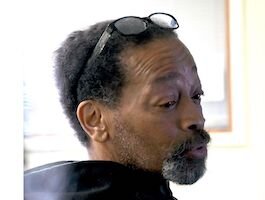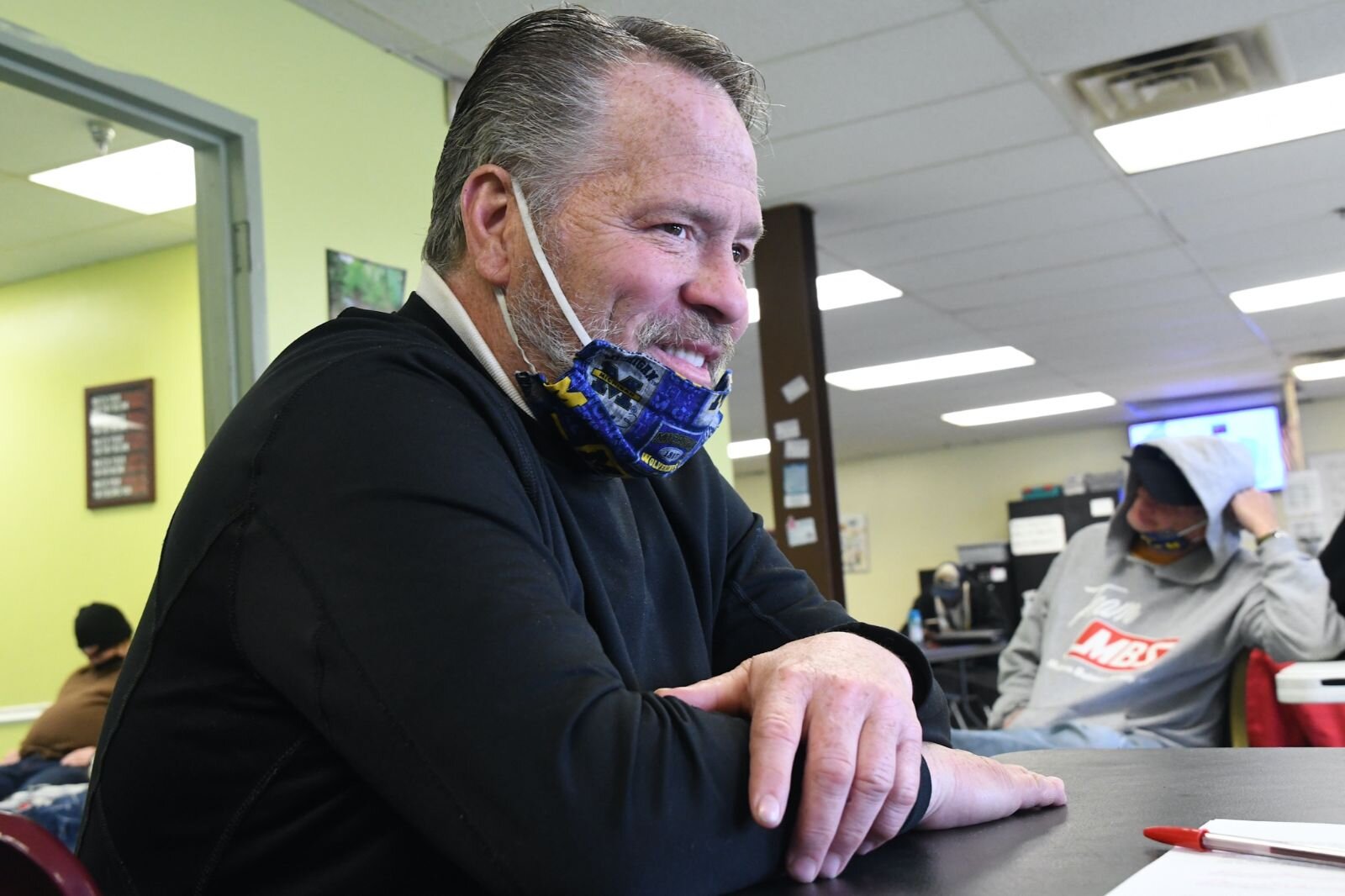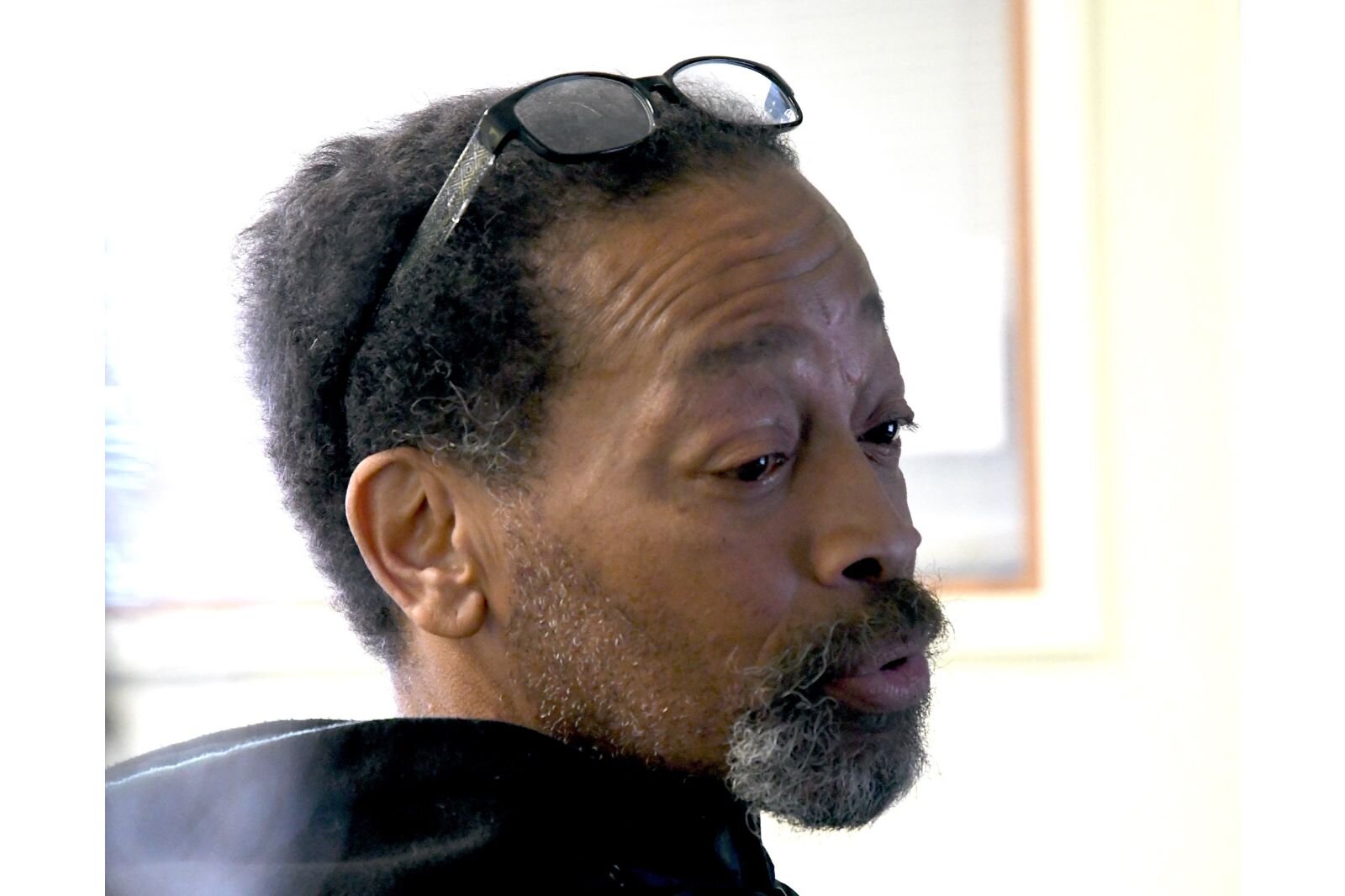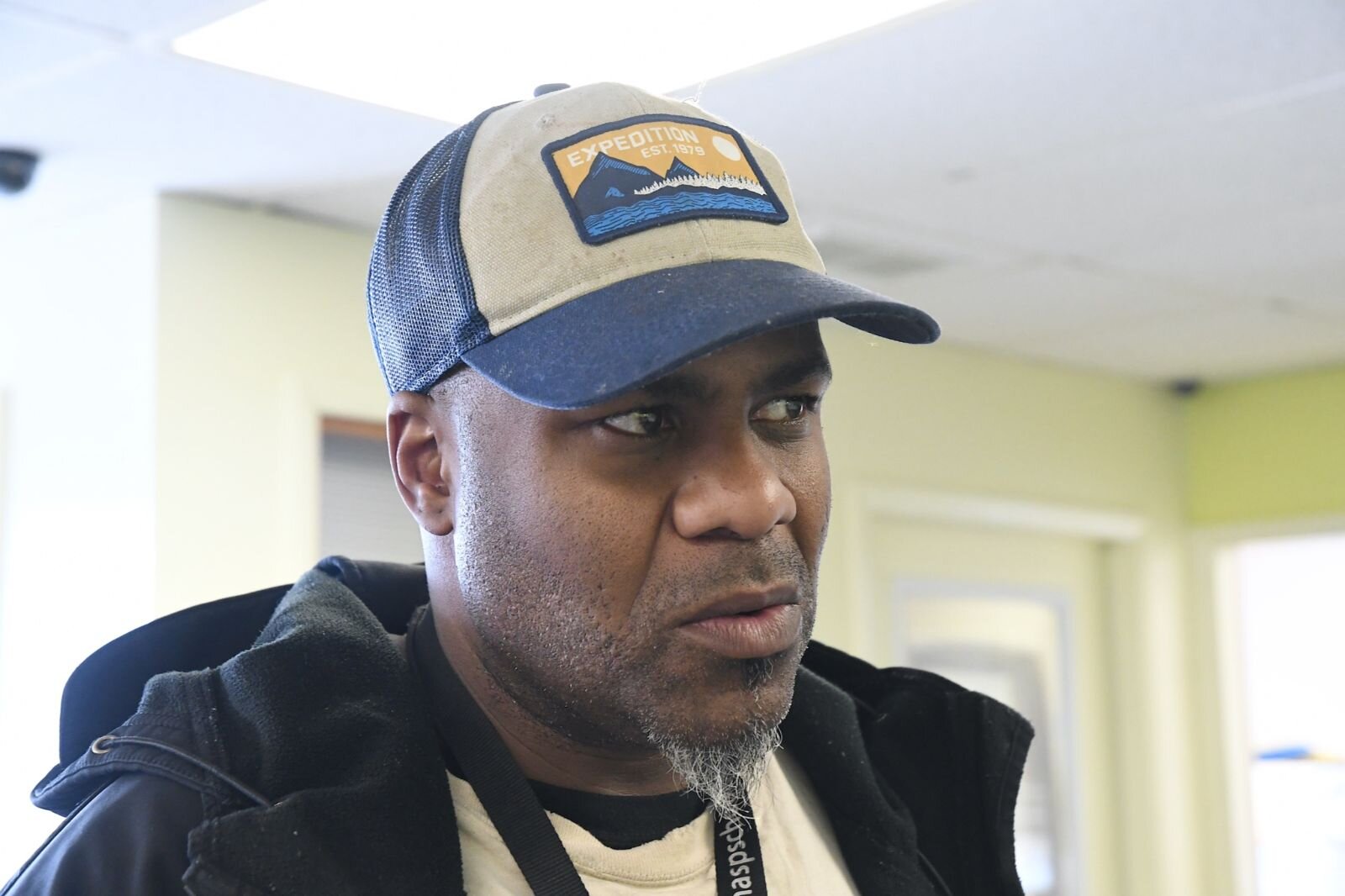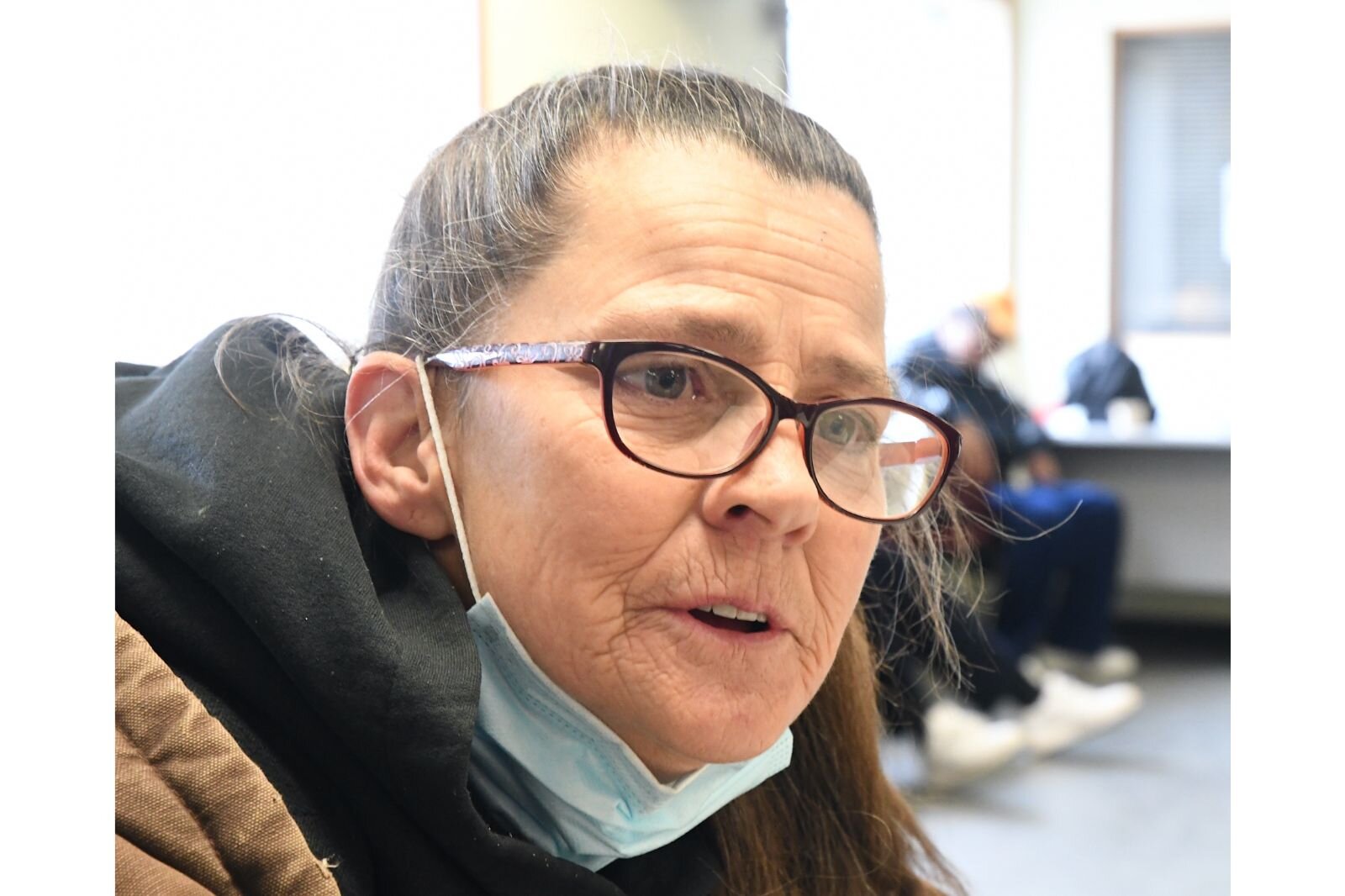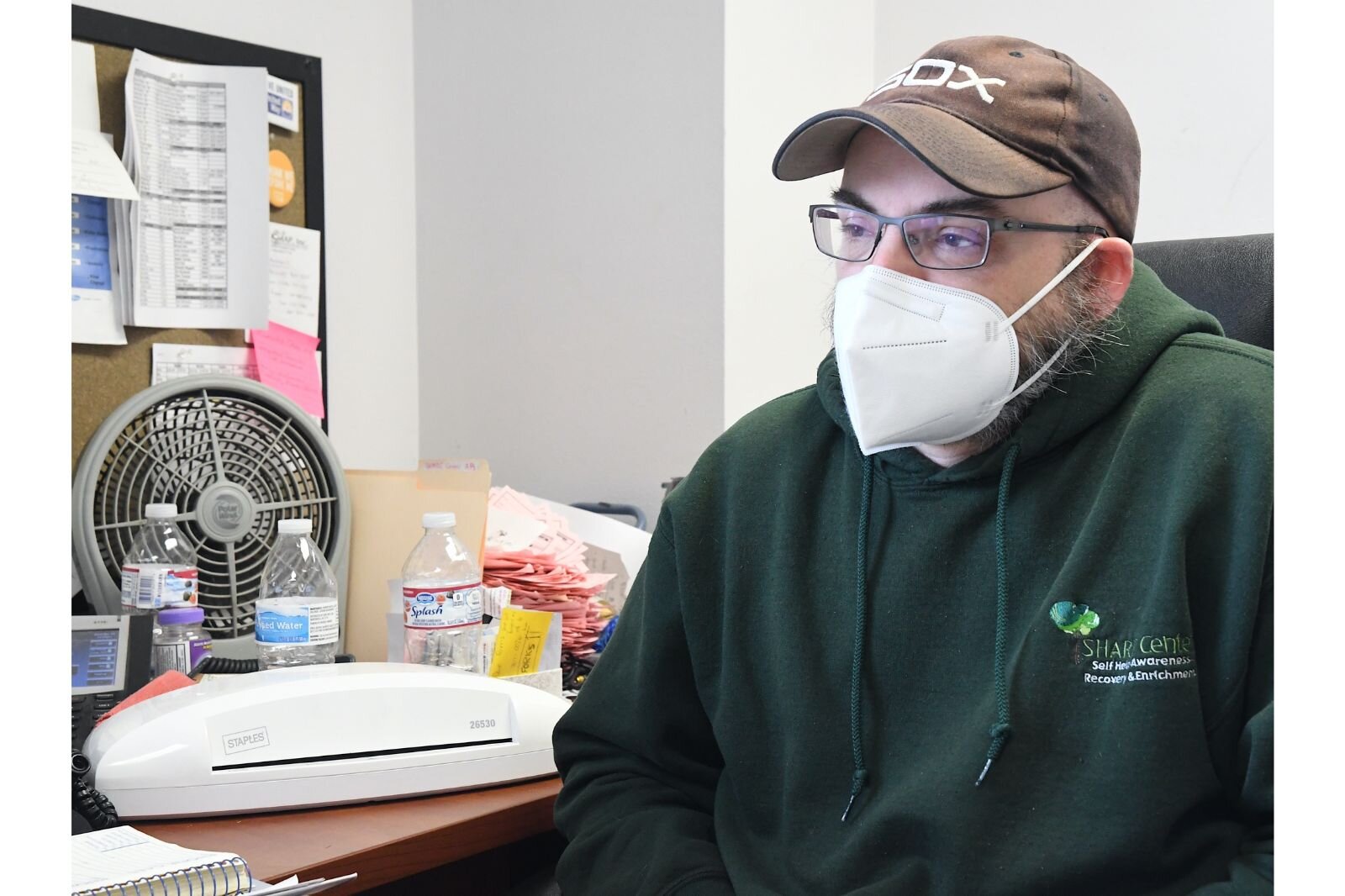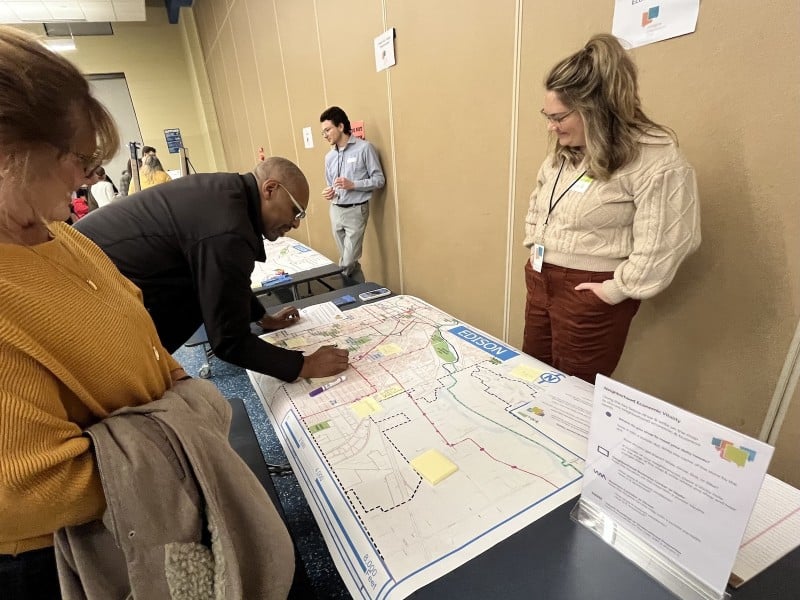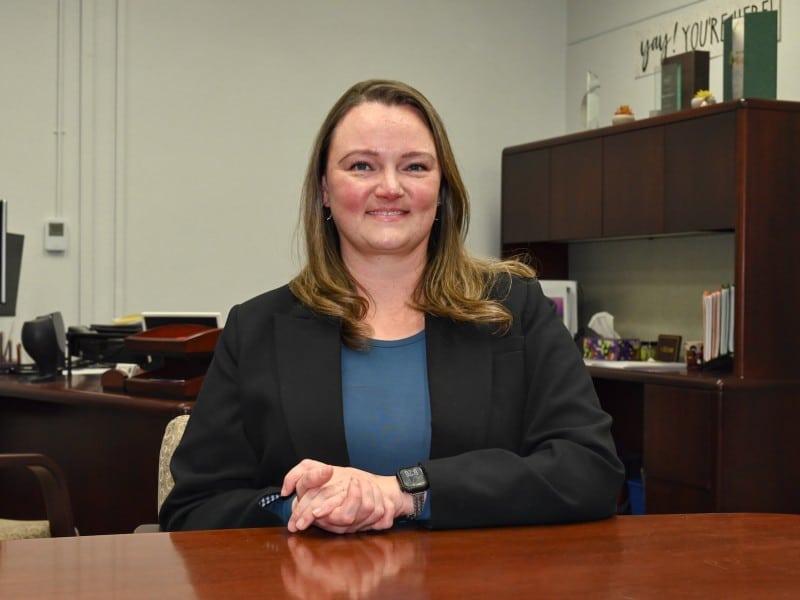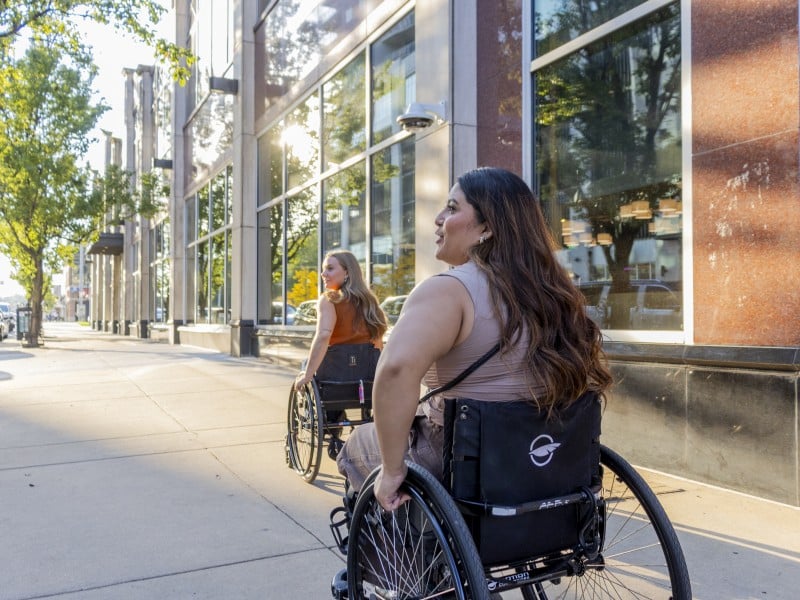Editor’s note: This story is part of a Southwest Michigan Second Wave series exploring issues surrounding COVID-19 in Calhoun county.
While the decision not to get the COVID-19 vaccine isn’t unique to Battle Creek’s homeless population, it does pose some unique challenges for the SHARE Center, a daytime drop-in facility serving the county’s chronically homeless, says Robert Elchert, SHARE Center Executive Director.
Among those challenges: getting consumers of that facility to wear their masks when they’re inside.
“I can walk through the building and their masks are down and they pull them back up when they see me,” Elchert says while sitting in his office on Wednesday inside the building that houses the nonprofit on Grove Street.
On any given day, Elchert says he could have anywhere from two to 70 individuals inside the building. The SHARE Center provides spaces for support groups to meet, free meals, access to computers for job seekers or those seeking assistance securing a state I.D., or room to relax.
Although many places have lifted their mask requirements the SHARE Center has not because some of its consumers have not been vaccinated and have no plans to do so.
Those who visit the SHARE Center do not have to show proof of vaccination to receive services, but they do go through a temperature check upon entering the building and wear a mask when they’re inside. The Center has a supply of masks and home COVID test kits that they keep behind the front counter. This enables them to adhere to their mission statement to remove any and all barriers for their consumers.
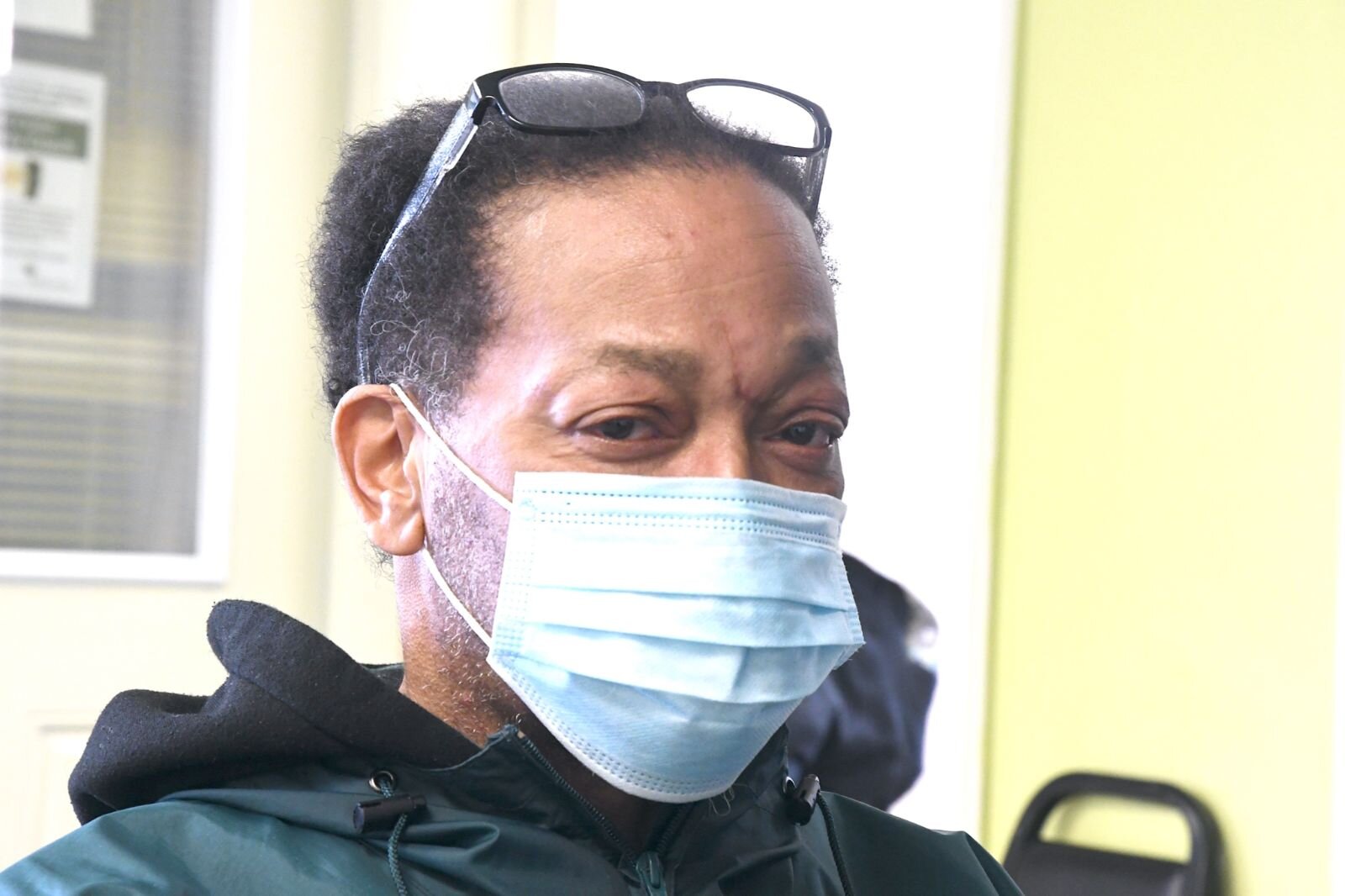
“We are barrier-free,” Elchert says. “One of the reasons we’re still wearing masks is because we know a significant number of our consumers are not vaccinated for whatever reason. My thinking is let’s just get through cold and flu season before we talk about not having to wear masks.”
Debbie Nap, 56, who has been coming to the SHARE Center for close to 20 years, says she doesn’t take issue with having to wear a mask but is adamantly opposed to getting the vaccine. She says there’s not enough proof out there to convince her otherwise.
“I don’t believe in it because I think people are still getting sick from COVID even though they got the vaccine,” she says while sitting at a table. “Why should I take it and get sick. I’ve already got enough health issues. I’ve got COPD (Chronic Obstructive Pulmonary Disease) and have uncontrolled seizures. I’m not going to make myself sicker. I have grandkids and I want to see them grow up so I want to stay as healthy as possible.”
Her grandchildren have been vaccinated and their parents have no concerns about her being around them. “They’d never deny their granny,” she says.
Nap’s current precautions include wearing a mask when she’s inside the SHARE Center and using hand sanitizer at least two or three times while there. She says if someone comes to her house, she comes outside to talk to them.
Sitting a few tables back from Nap, Ramon Harbin, a SHARE Center volunteer and owner of a photography business, says he is partially vaccinated. He got that first shot so that he could work for Voices for Vaccines, a federally-backed coalition of community-based organizations that addresses barriers to access and vaccine hesitancy in medically underserved areas with low vaccine rates throughout Michigan.
The vaccine group began canvassing in Battle Creek in October 2021. Harbin says he was vaccinated in November at a local CVS pharmacy. He says the people he talked to on the streets through his work with Voices for Vaccines reacted either negatively or nonchalantly when he discussed the pros and cons with them of getting vaccinated.
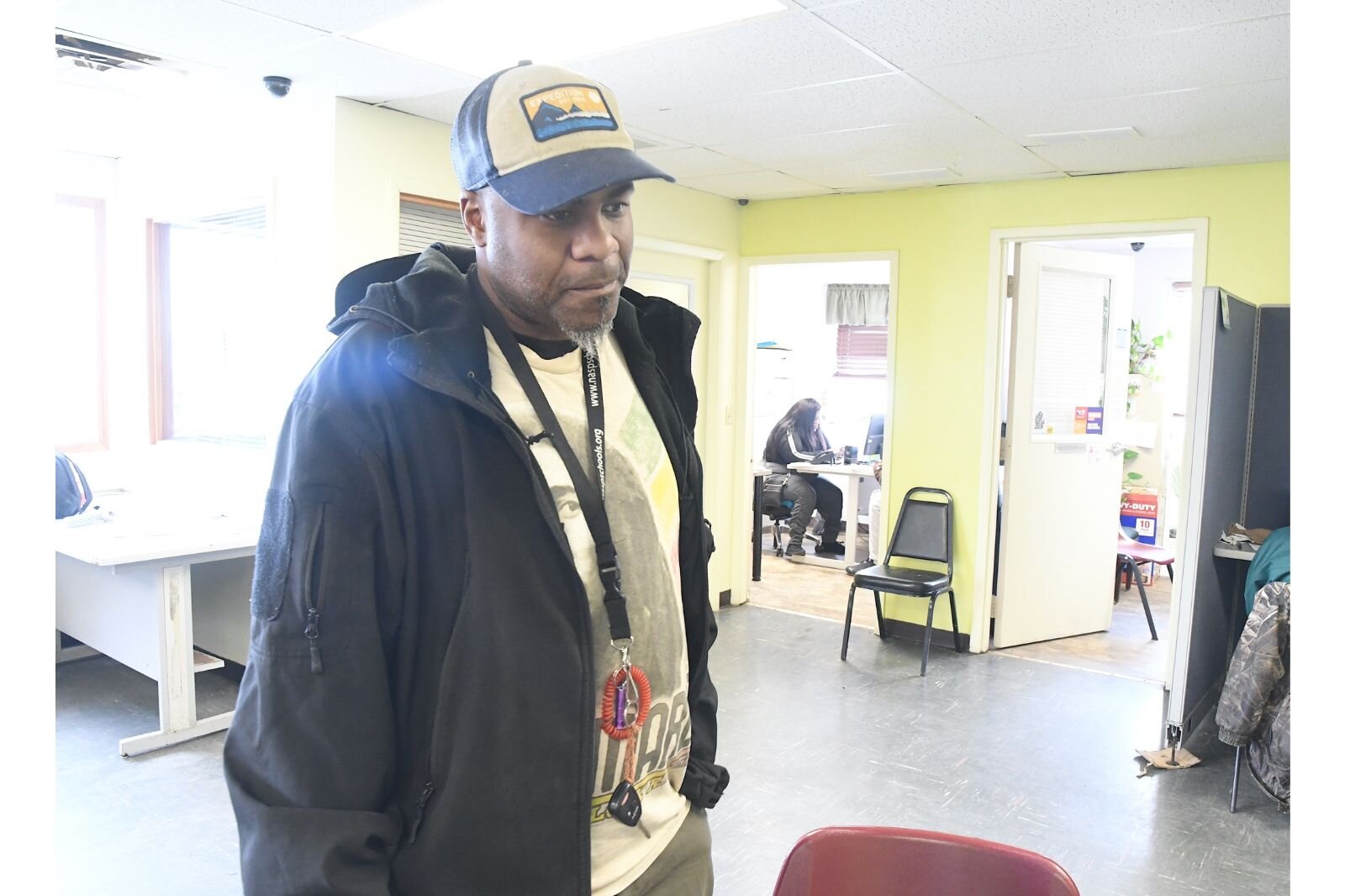
“A lot of what I was hearing was based on ignorance and what they were hearing word of mouth,” Harbin says.
Elchert says he has had a couple of meetings with consumers at the SHARE Center and on a couple of occasions heard someone repeating misinformation.
“I always encourage people to talk to their doctor. If they don’t have a doctor, I encourage them to go to the County Health Department,” he says. “We aren’t going to put people out for not being vaccinated, but we did make it easy for people to get vaccinated on-site. People need to have the right information. When the Calhoun County Health Department was here for a vaccine clinic, they convinced two or three people not vaccinated to get vaccinated.”
Dwight Graves, who was filling out job applications on a computer at the SHARE Center, says information he read in a pamphlet convinced him to become fully vaccinated. He received his first shot at a vaccine clinic held at the Center and the second shot at Grace Health.
Elchert says about 40 individuals received vaccinations through clinics offered at the SHARE Center.
“I was glad I did get vaccinated after I received a pamphlet and it pretty much provided me with an idea of the importance of the vaccine,” Graves says.
Kevin Robert O’Brien says he learned about the value of getting the vaccine after coming down with COVID.
“What I went through was not pleasant,” he says. “It was like being a wind-up machine going in slow motion. That was before I got vaccinated.”
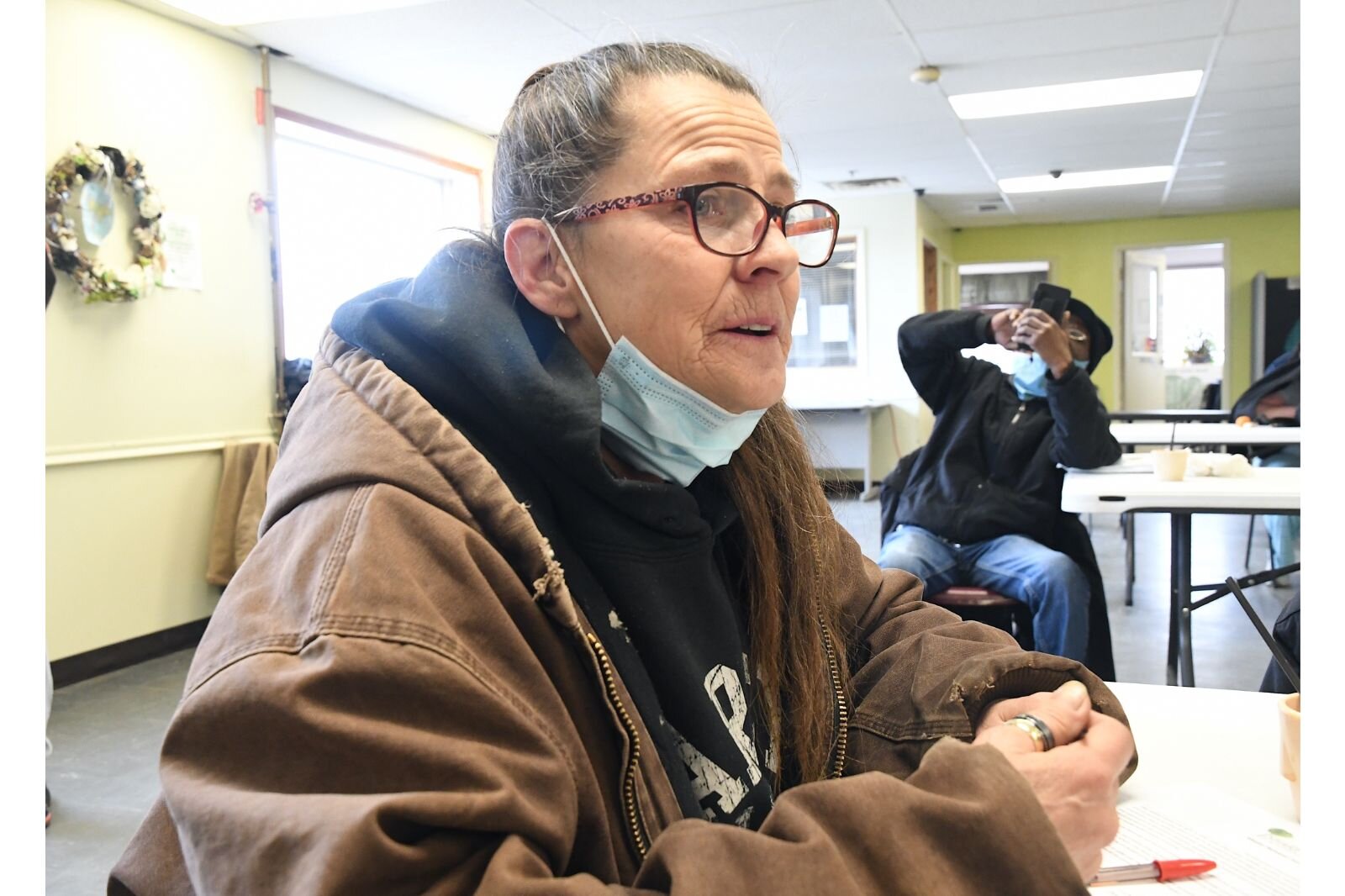
He says his mother had a milder case of COVID and he has two brothers, both of whom had COVID and were diagnosed with cancer. One brother passed away and the other one is hospitalized in an Intensive Care Unit at an area hospital.
“You find out how short life can be by not taking the vaccine,” O’Brien says.
In January, 2021, he received his first shot at Grace Health and a booster at Capital Pharmacy. He says he knows there are a lot of people who frequent the SHARE Center who are “shunning” the vaccine, but he takes pride in having “had three guys talked into it.”
Between the city’s homeless shelters and the SHARE Center, he says he thinks these people are well-informed about the virus and the vaccine. When not at the SHARE Center, O’Brien stays at the Battle Creek Homeless Shelter.
“I’ve been homeless on and off for about 10 years. This time it’s been for three years since I lost my fiancee,” he says.
A back injury that makes it difficult for him to stand for long periods of time, contributed to the living situation he now finds himself in. He says he continues his job search while also trying to get injections to ease the back pain.
He continues to wear a mask when inside the SHARE Center because it makes him feel safer knowing that there are people there that have not been vaccinated.
Elchert says it’s difficult to know who has and has not been vaccinated. He says with consumers at the SHARE Center, there are underlying issues
“I think it’s not really fully understanding the benefits of being vaccinated. For a lot of folks who struggle with severe mental health issues having one more thing to do can be overwhelming,” he says.

